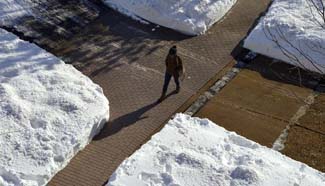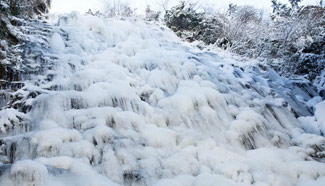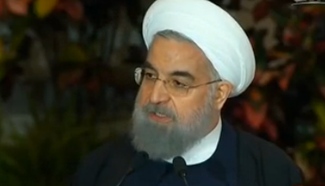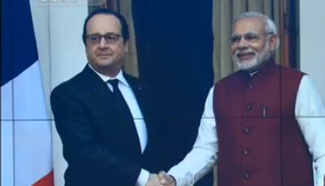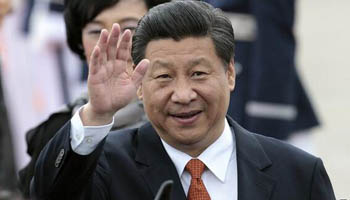
??? Medical staff in Gyirong county, Tibet autonomous region check the body temperature of soldiers who just flew back from relief work in Nepal, on May 6, 2015.[Photo/Xinhua]
The PLA Navy's hospital ship Peace Ark is a 178-meter-long, 25-meter-wide and 14,000-ton mammoth with red crosses beaming on both its sides. Since 2010, it has sailed around the world and served tens of thousands of people, mostly in East Africa and the Caribbean where free treatment and medicine are more than welcome.
Few navies in the world have such hospital ships. So why does the People's Liberation Army Navy use such a rare asset to serve so many people abroad?
The answer is: It helps build an awesome but pacifist image of the PLA that is closest to that built by General Zheng He 600 years ago. Zheng's seven voyages started in 1405 during the heydays of Chinese military history. His fleet, composed of "treasure boats", was next to none. It is thus only natural for an ever-growing PLA Navy to follow in his footsteps.
The PLA Navy's offer of free treatment and medicine to the needy is similar to Zheng's donation of porcelain and silk to the people around the rim of the Indian Ocean. It is also an extension of the PLA's prescribed role. If indeed the PLA must "do its best to serve people" according to China's Constitution, why cannot it serve the Chinese people as well as their counterparts across the world?
Zheng's imprint upon the PLA is indelible: be strong but not assertive, formidable but not coercive. This is expressed in minimal use of force wherever possible.
Some people see China's recent land reclamation in the South China Sea as an indicator of a stronger Beijing becoming overtly assertive. But it is only reclamation on Chinese-controlled islands and reefs. This is the least destabilizing effort China could possibly make to safeguard its sovereignty without resorting to force.
It is also an effort to offset the land reclamations made much earlier by other claimant countries, to which most Western countries have remained silent.
China's military strength is already being felt overseas. PLA Navy vessels have been patrolling the Gulf of Aden and the Somali Basin for seven years, and China has announced that it will build a logistic supply station in Djibouti. Also, apart from its 2,883 peacekeepers deployed overseas, China is building a standby peacekeeping force of 8,000 troops. More impressively, China is building a second aircraft carrier.



